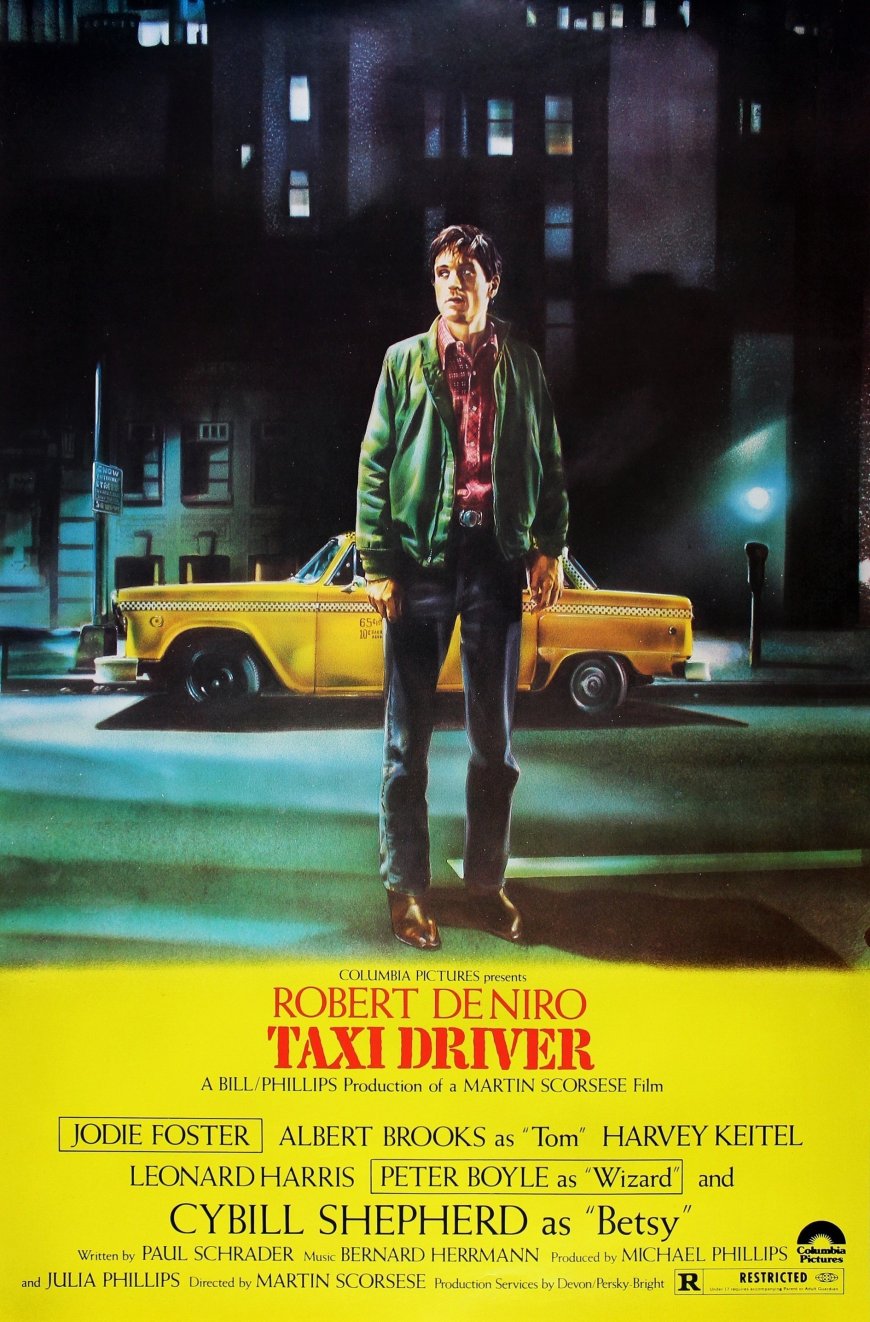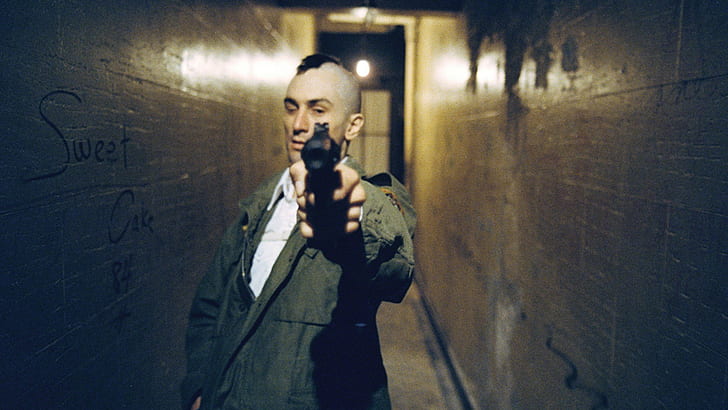Taxi Driver (1976)
The masterpiece, directed by Martin Scorsese, tells the story of Travis Bickle, a Vietnam veteran who struggles to find his place in society after returning from the Vietnam War.

Credits
Year of Production: 1976
Genre: Psychological Thriller
Director: Martin Scorsese
Cast: Robert De Niro, Jodie Foster
IMDb: 8.2/10
Review (SPOILER ALERT)
Travis Bickle, portrayed by Robert De Niro, is a Vietnam War veteran and former sailor. After returning from the war, he makes a living as a taxi driver, working night shifts on the dangerous streets of New York City. During his time as a taxi driver, Travis bears witness to the grim and violent atmosphere of the city. Due to feelings of alienation and loneliness that he experiences, he begins to act according to his own sense of justice.
The life of the main character changes as they become obsessed with a politician, and this transformation occurs after meeting Betsy. Travis tries to capture Betsy's attention by arranging for her to take a taxi ride, but interestingly, Travis's plan backfires, leading to complicated relationships. Betsy is a woman working at the campaign office of the politician who Travis has developed an obsession for. During their relationship, Travis becomes involved in the politician's campaign out of his desire to be close to them and offer assistance. As the relationship between Travis and Betsy becomes more complex, Travis decides to take on the gloomy atmosphere and crime-fighting in the city. Alongside his obsession with the politician, Travis's attempt to rescue the prostitute Iris contributes to his deteriorating mental state and eventual turn towards violent actions. Eventually, Travis begins to formulate an assassination plan for the politician he has fixated on, and during the campaign, he targets the politician for the assassination. However, the assassination attempt fails and attracts the attention of many people in the city. Travis gradually loses focus on his main target and, one day, meets his own end within a building, resembling an unsuccessful hero.

Travis's psychological state can be easily described under five main headings:
Loneliness and Social Isolation: After returning from the Vietnam War, Travis feels alienated in the city where he lives. He lives by himself and struggles to connect with others. Because of this, the lack of proper communication with people around him and the absence of a reliable social support network play a significant role in exacerbating Travis's mental issues. Emphasizing the importance of a social support network for preserving and improving mental health helps us understand the difficulties Travis faces.
Psychological Distress: Throughout the film, Travis's internal monologues and journal entries reveal the complexity of his thoughts and mind. Over time, he starts showing signs of paranoia and a tendency towards violence, navigating an uncertain line between reality and his imagination. The iconic mirror scene can be used as an example of this. Furthermore, Travis's experience of post-traumatic stress disorder (PTSD) from his time in the Vietnam War is central to his psychological state. The horrors and losses of the war impact Travis's daily life. Symptoms like sleep problems, nightmares, exaggerated reactions, and frequent flashbacks illustrate his struggle to cope with his traumatic experiences, further deepening his challenges in fitting into society.
Travis's Search for Identity: Resorting to violence to clean up the city's streets, Travis strives to be a "good man" and impose his own sense of justice in response to societal injustices and moral decay. Additionally, Travis's identity crisis and perception of masculinity are essential components of the psychological analysis. Trying to find his place in post-war society, Travis grapples with the conflict between traditional masculinity norms and the changing dynamics of the modern world. This struggle is reflected in his need to prove himself and his tendencies towards aggression.
Media and the Impact of Violence: Travis's progression towards violent actions and the kamikaze-style final scene provide an opportunity to critically examine the influence of media and violent content on individuals. The film allows for a discussion on how media might affect individuals with psychological issues like Travis, shaping them in negative ways.
Professional Help and Early Intervention: Travis's story underscores the critical nature of early diagnosis, professional assistance, and appropriate treatment methods in addressing psychological issues. Travis's psychological breakdown could have led to a different outcome with early intervention and professional therapy.
In conclusion, Taxi Driver is an intriguing film both in terms of its narrative and its main character. It's a film that definitely deserves a chance to be watched and appreciated.
What's Your Reaction?



















































































